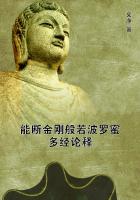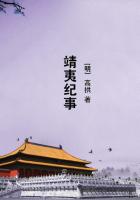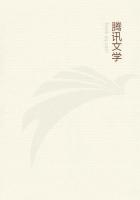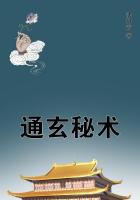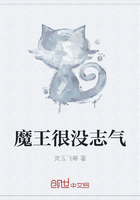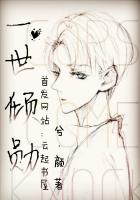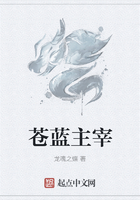At the command a line of soldiers moved from the right, forming itself up in front of the king and his attendants, revealing a number of youths, of from sixteen to seventeen years of age, armed with sticks only, who stood in companies outside a massive gate. Presently this gate was opened, and through it, with a mad bellow, rushed a wild buffalo bull. On seeing them the brute halted, and for a few moments stood pawing the earth and tearing it with its great horns. Then it put down its head and charged. Instead of ****** way for it, uttering a shrill whistling sound, the youths rushed at the beast, striking with their sticks.
Another instant, and one of them appeared above the heads of his companions, thrown high into the air, to be followed by a second and a third. Now the animal was through the throng and carrying a poor boy on its horn, whence presently he fell dead; through and through the ranks of the regiments it charged furiously backward and forward.
Watching it fascinated, Owen noted that it was a point of honour for no man to stir before its rush; there they stood, and if the bull gored them, there they fell. At length, exhausted and terrified, the brute headed back straight up the lane where the main body of the youths were waiting for it. Now it was among them, and, reckless of wounds or death, they swarmed about it like bees, seizing it by legs, nose, horns and tail, till with desperate efforts they dragged it to the ground and beat the life out of it with their sticks. This done, they formed up before the king and saluted him.
"How many are killed?" he asked.
"Eight in all," was the answer, "and fifteen gored."
"A good bull," he said with a smile; "that of last year killed but five. Well, the lads fought him bravely. Let the dead be buried, the hurt tended, or, if their harms are hopeless, slain, and to the rest give a double ration of beer. Ho, now, fall back, men, and make a space for the Bees and the Wasps to fight in."
Some orders were given and a great ring was formed, leaving an arena clear that may have measured a hundred and fifty yards in diameter.
Then suddenly, from opposite sides, the two regiments, known as the Bees and the Wasps respectively, rushed upon each other, uttering their war-cries.
"I put ten head of cattle on the Bees; who wagers on the Wasps?" cried the king.
"I, Lord," answered the Prince Hafela, stepping forward.
"You, Prince!" said the king with a quick frown. "Well, you are right to back them, they are your own regiment. Ah! they are at it."
By this time the scene was that of a hell broken loose upon the earth.
The two regiments, numbering some 5000 men in all, had come together, and the roar of their meeting shields was like the roar of thunder.
They were armed with kerries only, and not with spears, for the fight was supposed to be a mimic one; but these weapons they used with such effect that soon hundreds of them were down dead or with shattered skulls and bruised limbs. Fiercely they fought, while the whole army watched, for their rivalry was keen and for many months they had known that they were to be pitted one against the other on this day.
Fiercely they fought, while the captains cried their orders, and the dust rose up in clouds as they swung to and fro, breast thrusting against breast. At length the end came; the Bees began to give, they fell back ever more quickly till their retreat was a rout, and, leaving many stretched upon the ground, amid the mocking cries of the army they were driven to the fence, by touching which they obtained peace at the hands of their victors.
The king saw, and his somewhat heavy, quiet face grew alive with rage.
"Search and see," he said, "if the captain of the Bees is alive and unhurt."
Messengers went to do his bidding, and presently they returned, bringing with them a man of magnificent appearance and middle age, whose left arm had been broken by a blow from a kerry. With his right hand he saluted first the king, then the Prince Nodwengo, a kindly- faced, mild-eyed man, in whose command he was.
"What have you to say?" asked the king, in a cold voice of anger.
"Know you that you have cost me ten head of the royal white cattle?"
"King, I have nothing to say," answered the captain calmly, "except that my men are cowards."
"That is certainly so," said the king. "Let all the wounded among them be carried away; and for you, captain, who turn my soldiers into cowards, you shall die a dog's death, hanging to-morrow on the Tree of Doom. As for your regiment, I banish it to the fever country, there to hunt elephants for three years, since it is not fit to fight with men."
"It is well," replied the captain, "since death is better than shame.
Only King, I have done you good service in the past; I ask that it may be presently and by the spear."
"So be it," said the king.
"I crave his life, father," said the Prince Nodwengo; "he is my friend."
"A prince should not choose cowards for his friends," replied the king; "let him be killed, I say."
Then Owen, who had been watching and listening, his heart sick with horror, stood forward and said:--"King, in the name of Him I serve, I conjure you to spare this man and those others that are hurt, who have done no crime except to be driven back by soldiers stronger than themselves."
"Messenger," answered the king, "I bear with you because you are ignorant. Know that, according to our customs, this crime is the greatest of crimes, for here we show no mercy to the conquered."
"Yet you should do so," said Owen, "seeing that you also must ere long be conquered by death, and then how can you expect mercy who have shown none?"
"Let him be killed!" said the king.
"King!" cried Owen once more, "do this deed, and I tell you that before the sun is down great evil will overtake you."
"Do you threaten me, Messenger? Well, we will see. Let him be killed, I say."
Then the man was led away; but, before he went he found time to thank Owen and Nodwengo the prince, and to call down good fortune upon them.

